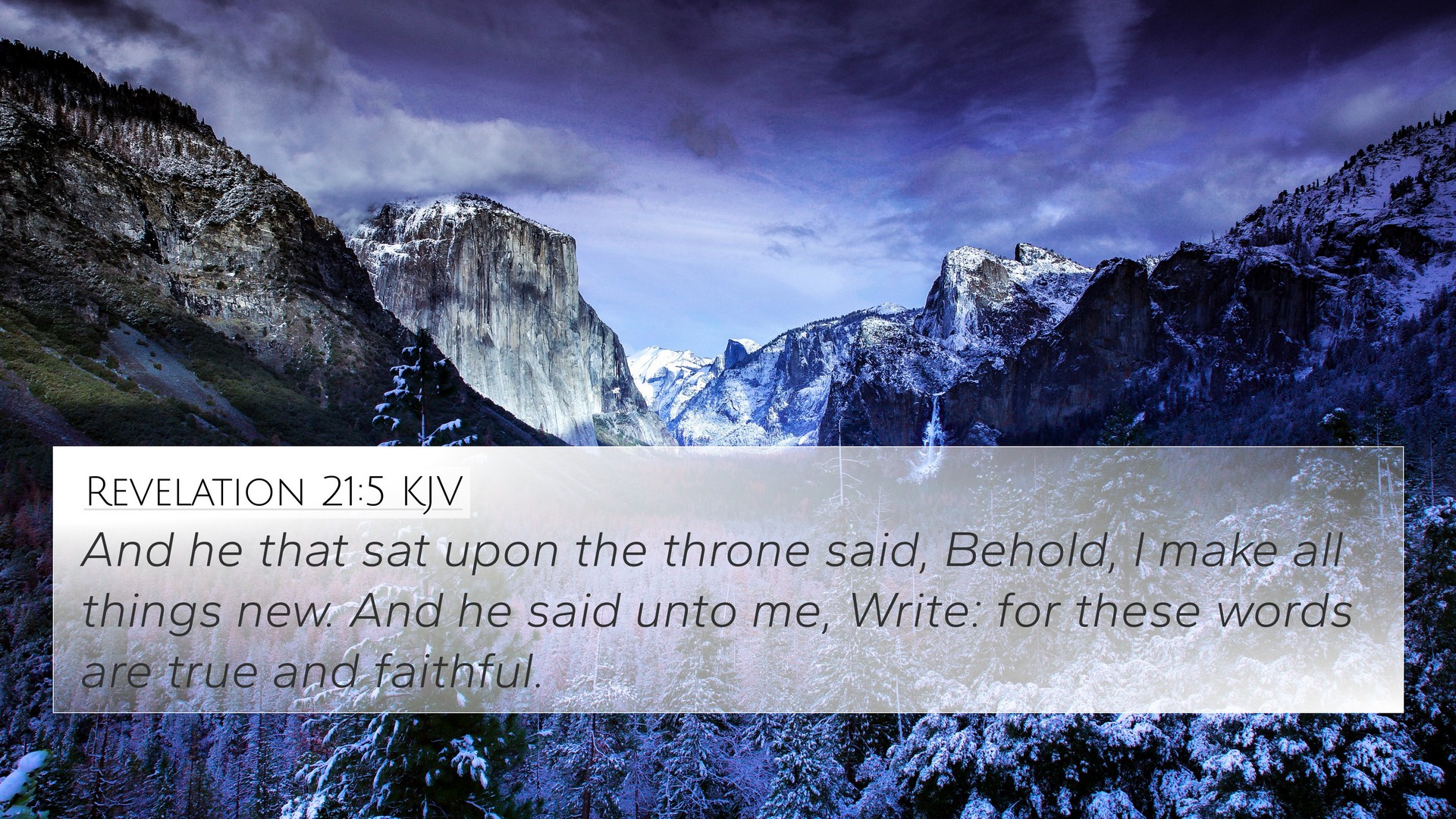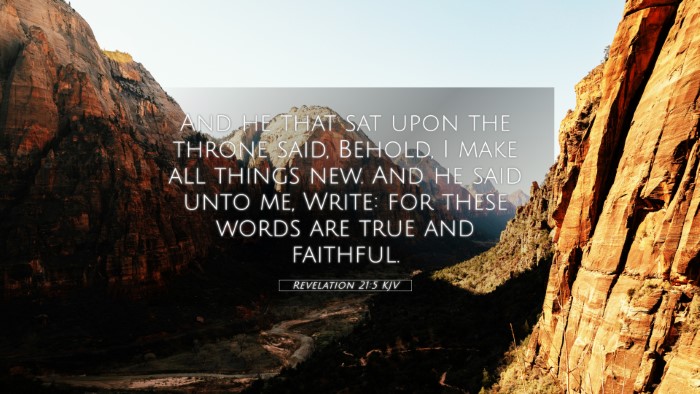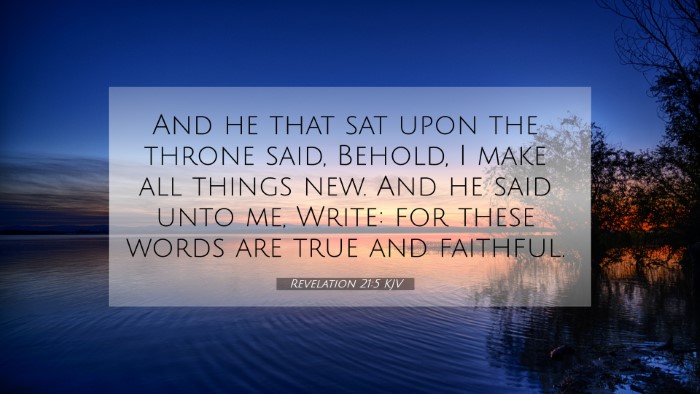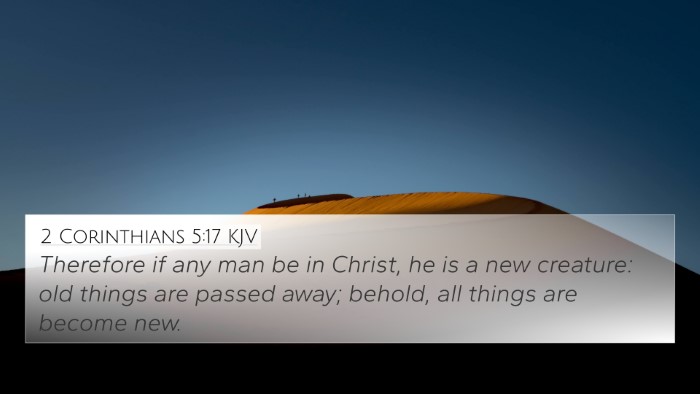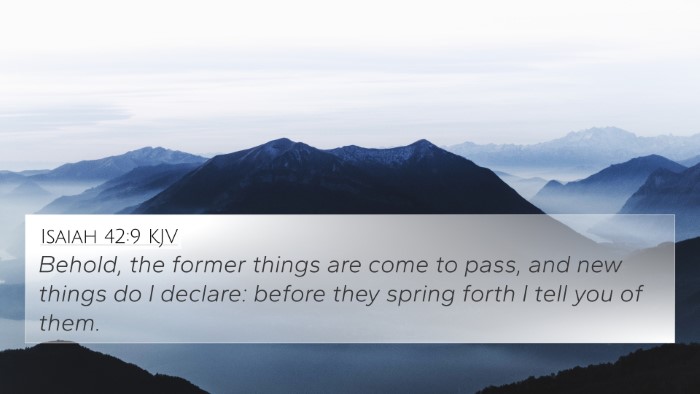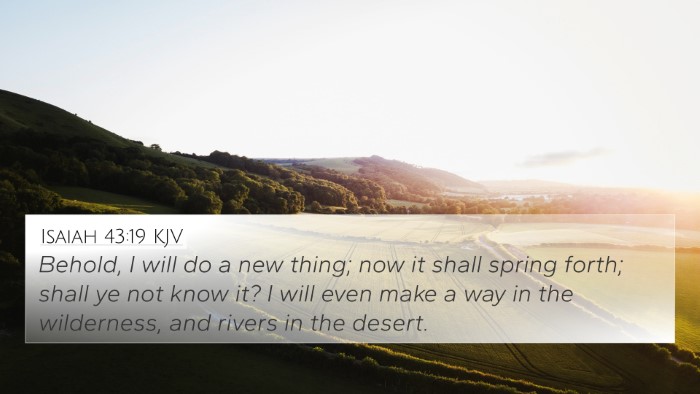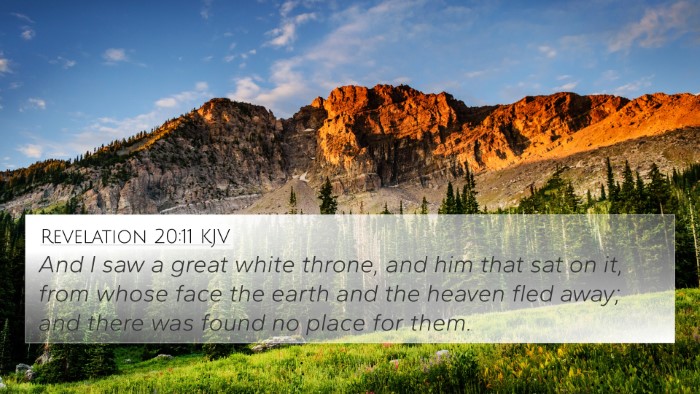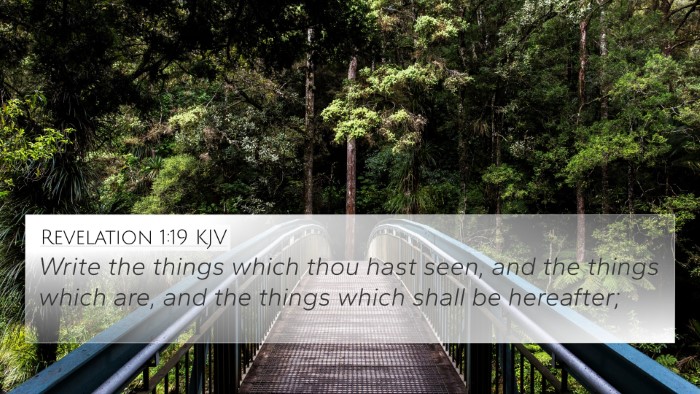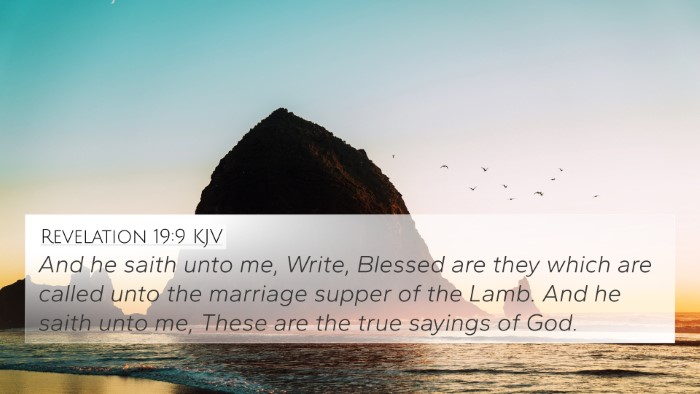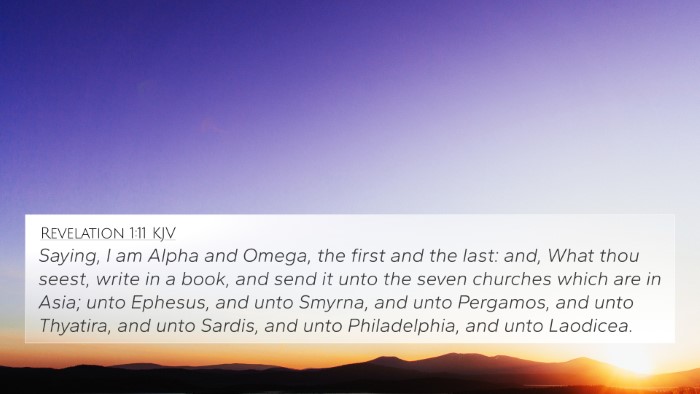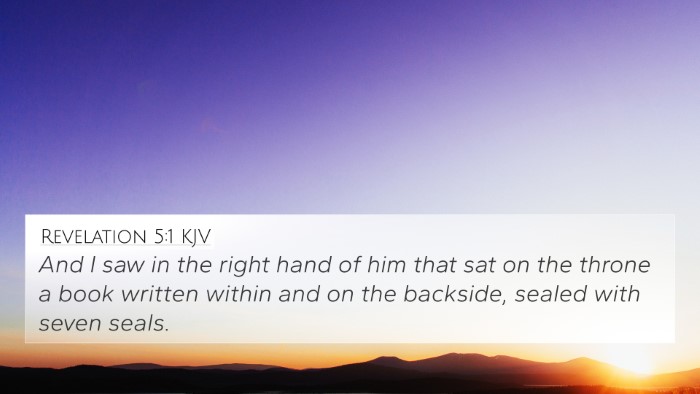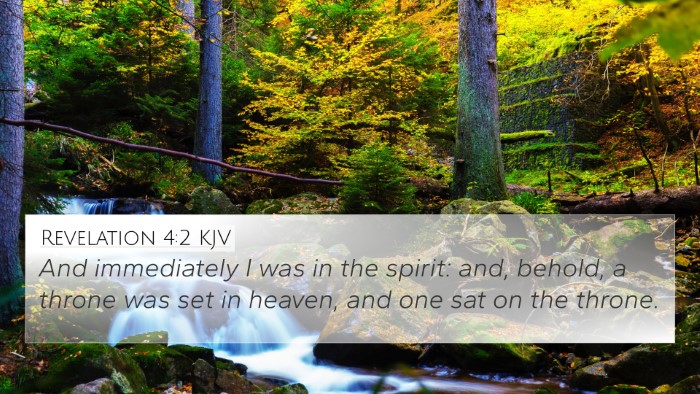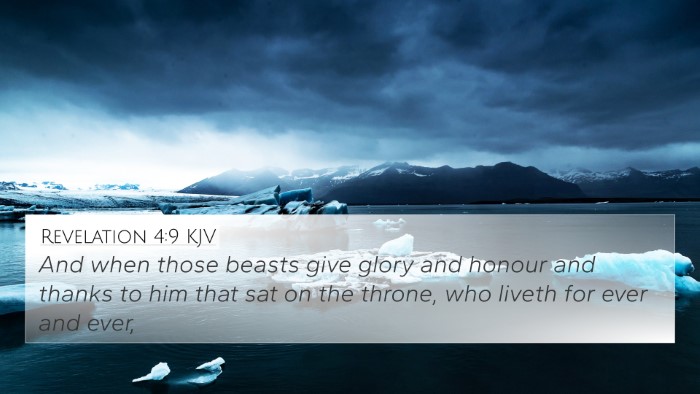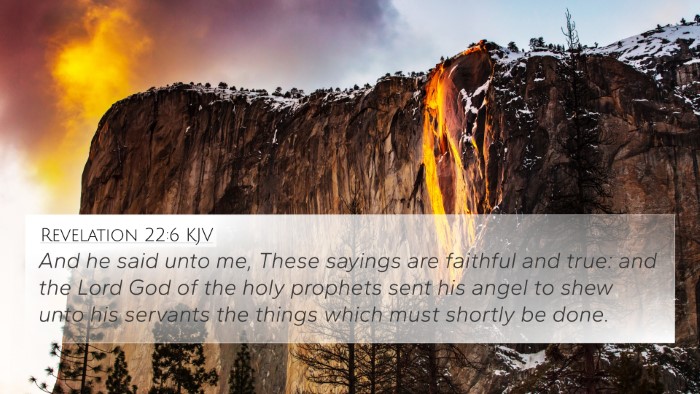Understanding Revelation 21:5
Verse: Revelation 21:5 - "And he that sat upon the throne said, Behold, I make all things new. And he said unto me, Write: for these words are true and faithful."
Summary of Meaning
The verse from Revelation signifies a divine proclamation about the renewal of creation, emphasizing that God is in the process of making all things new. This statement comes from the One who holds authority, sitting upon the throne, which symbolizes ultimate sovereignty and power. The command to "write" underscores the importance of this proclamation, providing assurance that the words are trustworthy and fulfilling a guarantee of God’s redemptive plans.
Insights from Public Domain Commentaries
Matthew Henry's Commentary
Matthew Henry notes that this verse denotes the refreshing and renewing work of God. It serves to remind believers of the future fulfillment of God's promises. His commentary emphasizes that every aspect of creation will be transformed, indicating the emergence of a new order where righteousness prevails. Henry also highlights the notion of hope inherent in these words, as they assure believers of God’s faithfulness in all His purposes.
Albert Barnes' Notes
According to Barnes, Revelation 21:5 encapsulates the theme of restoration present throughout the scriptures. He points out the importance of the spoken promises, which are both "true and faithful." Barnes connects this with the biblical notion of renewal seen in Isaiah 65:17, where God promises new heavens and a new earth. This underscores the continuity of God's redemptive narrative from the Old Testament through to Revelation.
Adam Clarke's Commentary
Adam Clarke emphasizes the certainty of God’s statement "Behold, I make all things new," positing that it signifies a complete transformation of the universe. Clarke also discusses the theological implications of this renewal, as it reflects God's intention to eradicate sin and suffering, ushering in eternal peace for those who believe. This transformation is not merely physical but also spiritual, indicating a new relationship between humanity and the Divine.
Cross-References to Revelation 21:5
- Isaiah 65:17: "For behold, I create new heavens and a new earth; and the former things shall not be remembered or come to mind."
- 2 Corinthians 5:17: "Therefore, if anyone is in Christ, he is a new creation; the old has passed away; behold, the new has come."
- Revelation 21:1: "Then I saw a new heaven and a new earth, for the first heaven and the first earth had passed away, and the sea was no more."
- Romans 8:21: "That the creation itself will be set free from its bondage to corruption and obtain the freedom of the glory of the children of God."
- Philippians 3:21: "Who will transform our lowly body to be like his glorious body, by the power that enables him even to subject all things to himself."
- Hebrews 12:26-28: "At that time his voice shook the earth, but now he has promised, 'Yet once more I will shake not only the earth but also the heavens.' This phrase, 'Yet once more,' indicates the removal of things that are shaken—that is, things that have been made—in order that the things that cannot be shaken may remain."
- Revelation 21:4: "He will wipe away every tear from their eyes, and death shall be no more, neither shall there be mourning, nor crying, nor pain anymore, for the former things have passed away."
Thematic Connections in the Bible
This verse is a pivotal point in understanding the eschatological vision of the Bible, portraying God’s ultimate plan for restoration, which resonates throughout biblical texts.
- The theme of New Creation: Found in both the Old and New Testament, linking Isaiah’s prophetic words and the transformative power of Christ.
- Hope and Restoration: Reflected in the faithful words of scripture, reinforcing God’s promise amidst adversity and tribulation.
- Redemption through Christ: Connecting the Old Testament sacrificial system to the New Testament’s fulfillment through Jesus’ death and resurrection.
Conclusion
Revelation 21:5 stands as a profound assertion of renewal and hope. By understanding its context and cross-referencing it with related verses, believers can appreciate the interconnectedness of Scripture and the coherent narrative of redemption and new beginnings in God’s plan. This verse not only serves as a promise of restoration but also encourages believers to look forward to a new heaven and earth, where pain and sorrow will be abolished, affirming God's ultimate sovereignty and faithfulness throughout the ages.
